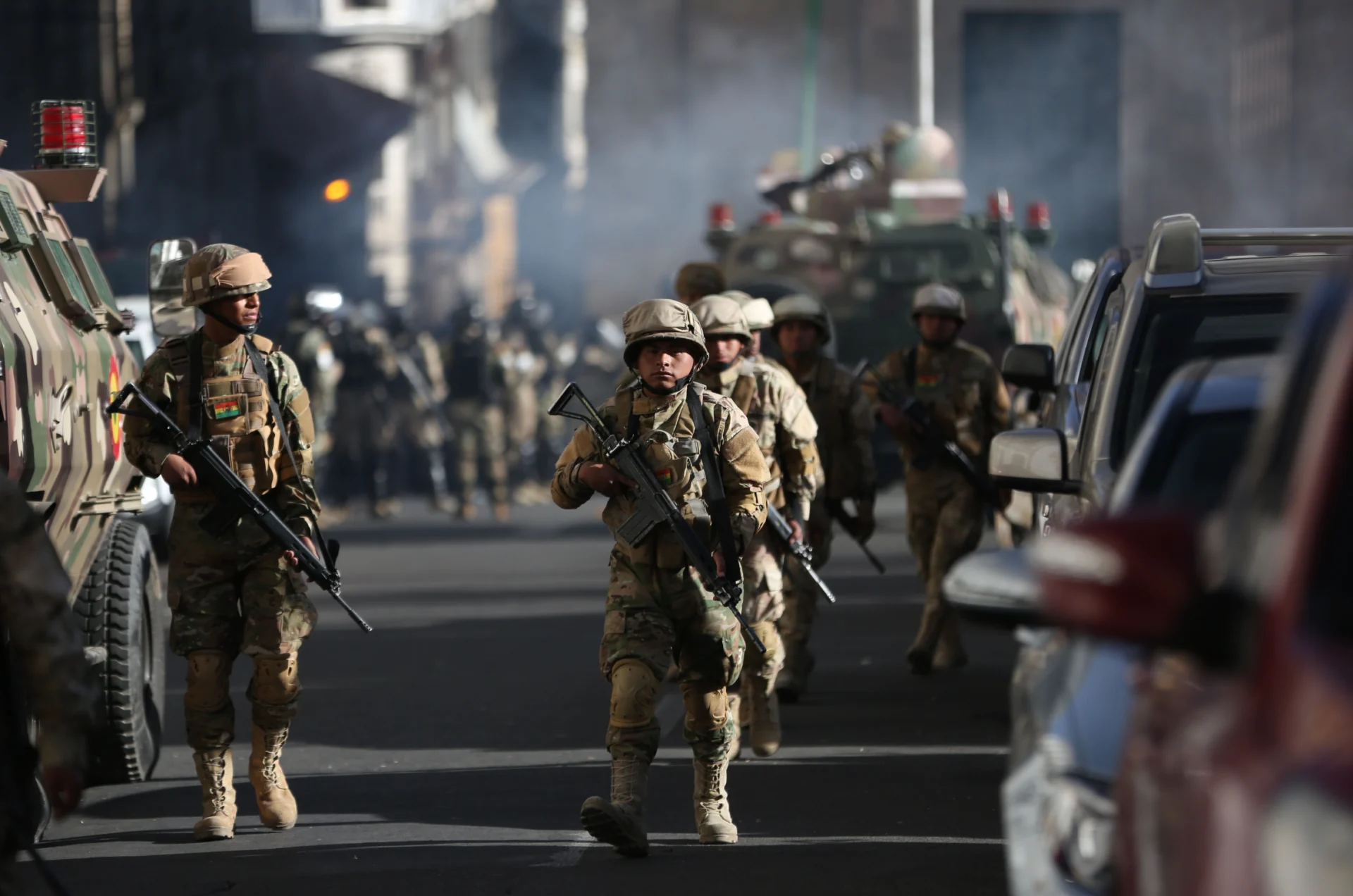Suddenly, on June 26, 2024, at 5:40 p.m., two men came face to face in the wake of an attempted coup d’état: the elected president of the state, Luis Arce, and the general in charge of the coup in Bolivia, Juan José Zúñiga. The first one, an economist, formed in the university desks and an expert in accounting balance sheets and econometric projections; the second one, a career military man, formed in the rigid discipline of the barracks and an expert in the daily exercise of giving orders to obedient and thin conscripts. Both, in a way, were the face of a country taken to the limit of its capacity for deinstitutionalization, disrespect for the rules and frank disregard for the forms. Arce occupied a position he had never dreamed of and perhaps for which he was not prepared. On his side, Zúñiga had reached the highest position in the Bolivian Army, despite having been imprisoned for suspicion of pocketing Bs 2.5 million destined for social aid, besides having been a mediocre cadet.
In that brief moment in which Arce and Zúñiga met in Palacio Quemado, two people were seen who, equally, lacked a political project. Both want or are in power, but do not know what to do with it. We do not know what Arce proposes as a political horizon for the country, beyond deepening the Evismo without Evo Morales, which consists of manipulating the state powers and putting them at the service of his ambitions for power. Nor is it known what Zúniga’s objective is, other than to show his anger at his dismissal as captain general of the Armed Forces.
In the brief moment in which Luis Arce, dressed in a jean and a little lead jacket, shouts at Zuñiga to withdraw his troops “immediately”, he receives as an answer a complaint, the rebel general tells him: “there cannot be so much disdain, so much ingratitude”. He is obviously referring to his dismissal and above all to his cause, which was to have given an opinion on politics in front of a well-known television presenter when it was not his place to do so.
Probably, Zuñiga, by expressing his position on Evo Morales in a public and unabashed way, believed that he was doing well, he thought that what he deserved was a congratulation, a hug, a handshake. Zuñiga’s reasoning was elementary but ultimately accurate: if the judges, who should show fairness and transparency, wore blue polo shirts in MAS campaigns and could have sentences to condemn opponents, why could not Zuñiga do it too? If a member of the Supreme Electoral Tribunal dared to attack Arce’s political enemies without putting his office at stake, why could not Zúñiga do something similar? Something was not right in Zúñiga’s military head, and he made it known to Arce.
It is the moment when Arce and Zuñiga look each other in the eye, there, in a government palace that no longer serves as anything but a museum of democracy, both are orphaned of political support. Although both Arce and Vice President Choquehuanca minutes before launched messages on the social network X calling for resistance to the coup, people did not take to the streets armed with stones to defend a government in which they believe less and less. On the contrary, people left their homes in fear and filled the markets to stock up on necessities in a moment that seemed to be the beginning of eternity.
For his part, Zúñiga did not have any backing either. There are no pronouncements from citizen organizations or civilians announcing and approving the new political time. Every coup needs a certain degree of citizen approval, a minimum level of legitimacy, which Zúñiga’s move lacks. Faced with this extreme, the general, already fully installed in his labyrinth, releases a trial balloon: he announces the release of political prisoners such as Governor Luis. F. Camacho and the former president Jeanine Añez, in the hope of support from the Bolivian conservative world and the economic elites. But nothing happens, neither the new right nor the businessmen take the bait.
Finally, Arce and Zuñiga (the A and Z of Bolivian politics) separate without saying goodbye. Zuñiga leaves Palacio Quemado perplexed, angry and frustrated, but finally calm because no police dare to arrest him as he should have been. He leaves Plaza Murillo amidst whistles and insults, but also some applause. For his part, Arce returns to the Casa Grande del Pueblo (the People’s Big House) to install the new military command. He swears them in and then goes to the microphone to say the words of rigor. Arce is in a situation of maximum audience, all the cameras of all the national and international media channels are waiting for his words, his hopeful speech. But Arce wastes the golden opportunity, he gives a brief, anodyne speech, full of greetings, that does not transmit any indignation or emotion, nor logically generates certainty or popularity.
Finally, public employees run to Plaza Murillo to celebrate the rebirth of Luis Arce, happy that their world and their positions are, for the moment, intact.
*Translated by Janaína Ruviaro da Silva from the original in Spanish.











